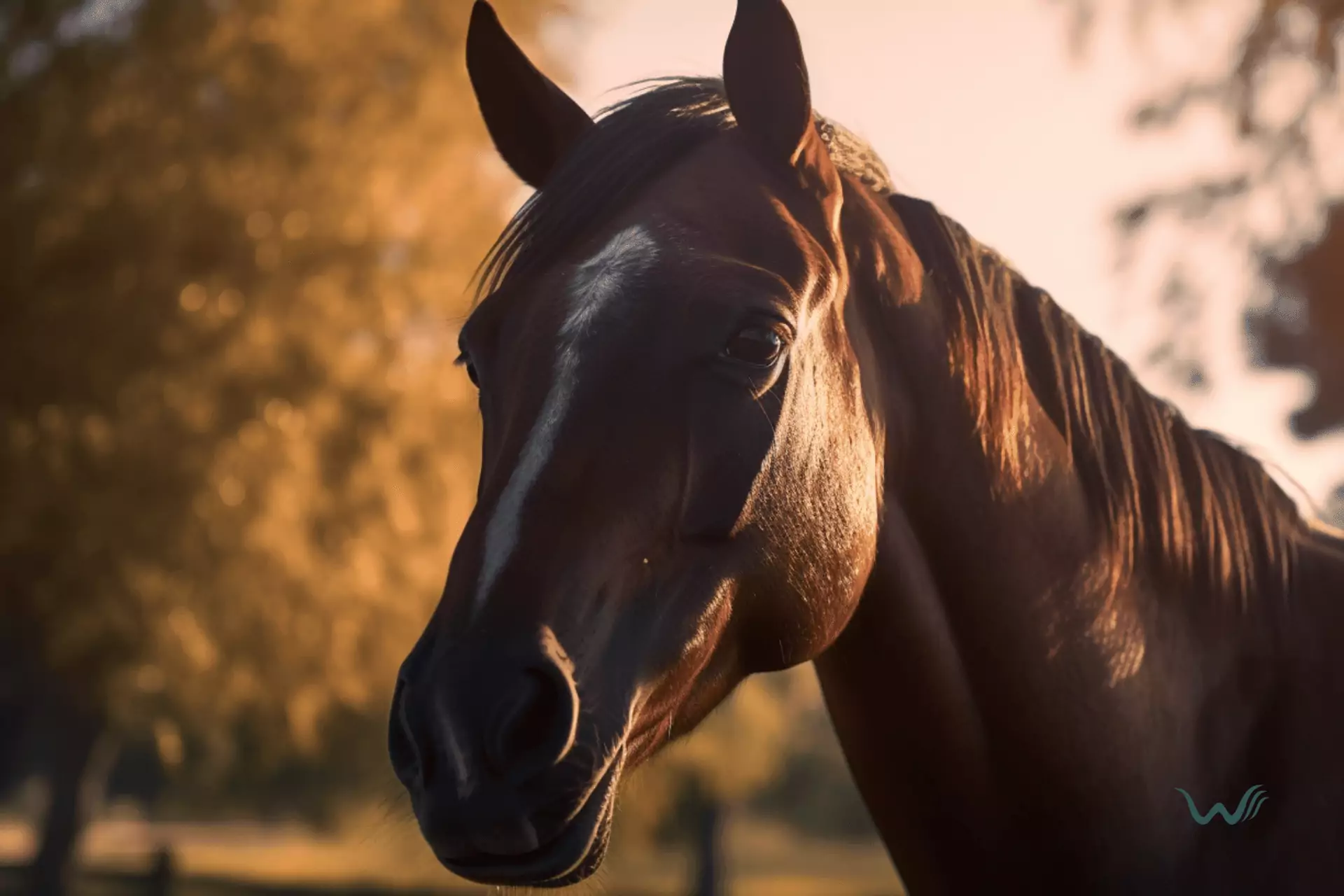

The Best Topicals For Horse Skin Issues
by Haley Mills
Last updated: April 22, 2024
Verified and Approved by:
Angela Morris,
MSW, LCSW
Fact Checked

Horses are majestic creatures known for their strength and grace, but just like any other living being, they can experience skin issues. From dryness and itchiness to rashes and infections, horse skin problems can cause discomfort and concern for both the horse and its owner.
Fortunately, various topical treatments can help alleviate these issues and bring relief to our equine friends.
This article will look into the best topicals for horse skin issues, providing valuable information on identifying common horse skin problems and their root causes. We will explore the world of topical treatments, discussing different options available in the market that have proven to be effective in treating these issues.
Key Takeaways
- Use high-quality shampoos and conditioners specifically made for horses to maintain pH balance and moisturize the skin.
- Properly dry the horse’s coat after bathing to prevent the growth of bacteria or fungi.
- Schedule regular check-ups with a veterinarian to assess the horse’s overall health and catch any potential skin issues early on.
- Consult with a veterinarian to examine the horse’s skin for signs of irritation, allergies, or infections, and to receive guidance on appropriate skincare products and treatments.
Common Horse Skin Issues
Owners should be aware of several common causes of horse skin issues. One of the most prevalent causes is allergies, which can be triggered by various substances such as pollen, dust mites, or certain types of feed.
Other common causes include fungal or bacterial infections, parasites like mites or lice, and environmental factors like excessive moisture or dryness. Identifying the underlying cause of the skin issue is crucial in determining the most effective treatment.
When it comes to veterinary treatments for horse skin issues, several options are available. Depending on the specific issue, your vet may recommend medicated shampoos or sprays that contain ingredients like antifungals, antibacterials, or anti-inflammatory agents. These topicals can help alleviate symptoms and promote healing.
Oral medications such as antibiotics or antihistamines may be prescribed in more severe cases. Additionally, your vet may suggest dietary changes or supplements to address any underlying nutritional deficiencies or imbalances that could be contributing to the skin problem.
Regular grooming practices, such as regular bathing and thorough equipment cleaning, can also help prevent and manage horse skin issues. It’s important to consult with your veterinarian to determine the most appropriate treatment plan for your horse’s specific skin issue.
Identifying the Root Cause
Identifying the root cause starts with understanding the underlying factors contributing to skin issues in horses. Two key factors contributing to skin issues in horses are allergies and the importance of proper grooming. Allergies can manifest in various ways, such as hives, itchiness, and hair loss. Identifying the specific allergen can be challenging, but it is crucial in order to treat and manage the horse’s skin issues effectively. This may require working with a veterinarian to conduct allergy testing and eliminate potential allergens from the horse’s environment.
Proper grooming is also essential in maintaining the health of a horse’s skin. Regular brushing helps remove dirt, debris, and dead skin cells from the coat, preventing skin irritation and developing skin issues. Additionally, bathing the horse with appropriate shampoos and conditioners can help to keep the skin clean and moisturized. It is essential to use products specifically formulated for horses and avoid harsh chemicals that can dry out the skin. Regular grooming sessions also allow one to closely inspect the horse’s skin for any abnormalities or signs of potential issues.
To further illustrate the importance of understanding allergies and proper grooming, the following table provides a comparison of these two factors:
| Understanding Allergies | Importance of Proper Grooming | |
|---|---|---|
| Definition | Understanding the specific allergens that can trigger skin issues in horses. | Proper grooming practices can prevent skin issues and promote overall skin health. |
| Impact on Skin Issues | Identifying and eliminating allergens can help prevent or reduce skin issues in horses. | Regular grooming sessions, using appropriate products, and promptly addressing skin abnormalities. |
| Treatment and Management | Working with a veterinarian to conduct allergy testing and eliminate potential allergens. | Regular grooming sessions, using appropriate products, and addressing any skin abnormalities promptly. |
Topical Treatments for Horse Skin Issues
Several effective ingredients can be found in horse skin topicals. One such ingredient is tea tree oil, which has antibacterial and antifungal properties. This can help to combat infections and reduce inflammation on the horse’s skin.
Another effective ingredient is aloe vera, which has soothing and healing properties. Aloe vera can help to moisturize the skin and promote the healing of wounds or irritations. Additionally, ingredients such as chamomile and calendula can help to calm and soothe the horse’s skin, reducing itching and discomfort.
In addition to choosing topicals with effective ingredients, properly apply the treatments to the horse’s skin. First, cleaning the affected area before applying any topical treatment is crucial. Use a gentle cleanser or warm water to remove any dirt or debris from the skin.
Next, carefully apply the topical treatment to the affected area, making sure to cover the entire area evenly. Follow the instructions on the product label for the recommended amount to use. Finally, monitor the horse’s skin for any changes or improvements. If the issue persists or worsens, it’s important to consult a veterinarian for further guidance and treatment options.
Natural Remedies for Horse Skin Issues
These natural remedies have been used for centuries to address a wide range of skin conditions in horses. Herbal remedies, such as calendula and chamomile, are known for their soothing properties and can help alleviate itching and inflammation. Calendula, also known as marigold, has antimicrobial and anti-inflammatory properties that can promote healing and reduce the risk of infection. Chamomile, on the other hand, has anti-itch and anti-inflammatory properties, making it an excellent choice for horses with sensitive or irritated skin.
Essential oils, such as tea tree oil and lavender oil, are also beneficial for horse skin issues. Tea tree oil has antifungal and antibacterial properties, making it effective in treating skin infections and preventing further complications. Conversely, lavender oil has soothing and calming properties and can help reduce inflammation and promote healing.
When using herbal remedies and essential oils on your horse’s skin, it’s important to dilute them properly and perform a patch test first to ensure your horse doesn’t have any adverse reactions. Additionally, it’s always a good idea to consult with a veterinarian or an equine herbalist before using any natural remedies on your horse.
Prevention and Maintenance Tips
Take proactive steps to keep your horse’s skin healthy and problem-free. Establishing an effective skincare routine is one of the most important aspects of preventing and maintaining horse skin issues.
This includes regular grooming sessions to remove dirt, debris, and sweat from the horse’s coat. Use a gentle brush or curry comb to stimulate blood circulation and distribute the natural oils on the skin.
Additionally, make sure to use high-quality shampoos and conditioners specifically formulated for horses. These products will help maintain the skin’s pH balance and keep it moisturized. After bathing, thoroughly dry the horse’s coat to prevent the growth of bacteria or fungi.
Another crucial aspect of prevention and maintenance is scheduling regular check-ups with a veterinarian. Regular check-ups allow the vet to assess the overall health of your horse and catch any potential skin issues early on.
these visits, the vet can thoroughly examine the horse’s skin, checking for any signs of irritation, allergies, or infections. They can also guide you on the best skincare products and treatments for your horse’s specific needs.
Next Steps
Horse skin issues are a common problem that many horse owners face. It’s essential to identify the root cause of these issues in order to properly treat and prevent them from recurring.
Topical treatments such as medicated shampoos, creams, and ointments can effectively relieve and heal the horse’s skin. When choosing a topical treatment, it’s important to consider the specific skin issue that your horse is facing. Different skin issues may require different types of treatments, so it’s important to consult with a veterinarian to determine the best course of action.
Natural remedies such as aloe vera and tea tree oil can also be beneficial in soothing and healing the horse’s skin. Prevention and maintenance are key in ensuring that your horse’s skin remains healthy and free from issues. Regular grooming, proper nutrition, and a clean living environment are all critical factors in preventing skin issues.
Providing your horse with proper protection from the elements, such as fly sheets and blankets, can also help prevent skin problems. Overall, taking care of your horse’s skin requires a combination of proper identification, treatment, and prevention. By being knowledgeable about typical horse skin issues and using the appropriate topical therapies, you can ensure the health and well-being of your horse. Remember to always consult with a veterinarian for proper diagnosis and treatment recommendations.
Certify Your Emotional Support Animal Today

Why You Can Rely on Us?
At Wellness Wag, we believe your pet deserves care rooted in both science and compassion. Each article is carefully researched, written in clear language for pet owners, and then reviewed by qualified professionals to ensure the information is evidence-based, current, and practical for real-life care. Our goal is to help you feel confident in making informed decisions about your pet’s health and well-being.
Reviewed by
Angela Morris, MSW, LCSW
Angela is a licensed clinical social worker with 20 years of experience in patient advocacy and community mental health. She has assisted numerous clients with ESA evaluations and brings a deep understanding of disability accommodations, ensuring that all information is accurate, supportive, and practical.

Written by :
Haley Mills
Last Updated :
April 22, 2024










